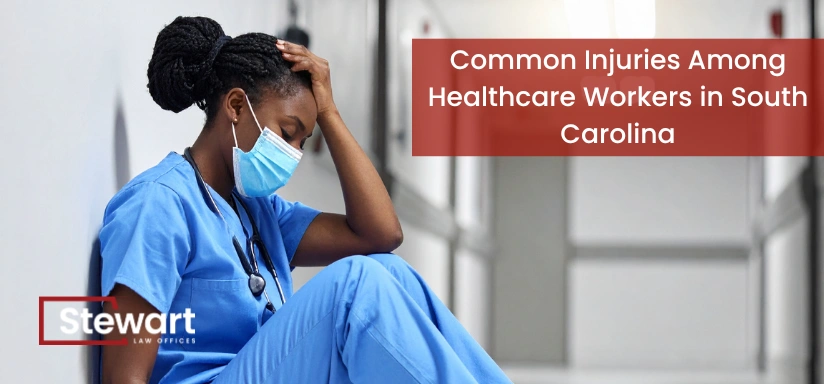Healthcare workers face some of the highest rates of workplace injuries in South Carolina and across the United States. Their jobs demand constant physical effort, including lifting, transferring, and caring for patients in fast-paced and stressful environments. These risks make healthcare one of the most injury-prone professions, often surpassing construction and manufacturing in reported workplace injuries.
The most common harm involves musculoskeletal disorders, particularly back and shoulder strains, which can lead to long-term pain, disability, and costly medical treatment.
Who Is Considered a Healthcare Worker?
A healthcare worker includes a broad range of professionals who work in medical settings, not just doctors and nurses. The term covers anyone whose job is related to patient care or the healthcare environment, such as:
- Clinical Staff: Nurses (RNs, LPNs), Certified Nursing Assistants (CNAs), physicians, surgeons, and physician assistants.
- Therapists: Physical, occupational, and respiratory therapists.
- Technicians: Laboratory, radiology, and surgical technicians.
- First Responders: EMTs and paramedics.
- Support Staff: Home health aides, orderlies, janitorial, administrative, and food service employees within a hospital or clinic.
What Is the Most Common Injury Experienced by Healthcare Workers in South Carolina?
The injury data for South Carolina aligns with national statistics. The most common injuries for healthcare workers in the state are strains, sprains, and other musculoskeletal damage to the back and shoulders. These are overwhelmingly caused by the physical demands of manually lifting, transferring, and repositioning patients.
Other Less Common Injuries Among Healthcare Workers
While overexertion injuries are the most frequent, healthcare professionals also face other significant risks:
- Slips, Trips, and Falls: Caused by wet floors, spills, and cluttered workspaces, leading to fractures and sprains.
- Workplace Violence: Physical assaults from patients or visitors are a serious risk, particularly in emergency and psychiatric departments.
- Needlestick Injuries: Accidental punctures from used needles can expose workers to bloodborne pathogens like HIV and Hepatitis C.
- Hazardous Exposure: Contact with chemicals, sanitizing agents, and medications can result in respiratory illness or skin conditions.
Factors That Contribute to Healthcare Worker Injuries
Healthcare worker injuries are driven by a combination of factors. The manual handling of patients without proper lift equipment is the leading cause, a risk amplified by fatigue from long, stressful shifts. This exhaustion, combined with a fast-paced environment, impairs judgment and coordination, increasing the likelihood of accidents.
Steps to Take After a Workplace Injury in Healthcare
If you are injured on the job, you must take these steps to protect your health and legal rights:
- Report the Injury Immediately: Notify your direct supervisor or manager as soon as possible, even if the injury seems minor.
- Get Medical Care: Seek a prompt medical evaluation. Your employer will likely direct you to an approved physician for a workers’ compensation claim.
- Document the Incident: Write down exactly what happened, including the date, time, location, and any witnesses.
- File an Official Report: Complete your employer’s internal incident report form with accurate and detailed information.
Workers’ Compensation Options for Injured Healthcare Workers in SC
The South Carolina Workers’ Compensation Act Title 42 provides a no-fault system for employees injured by accident in the course of employment. Covered workers are entitled to:
- Necessary medical care
- Partial wage replacement
- Compensation for permanent physical impairment (with medical evidence)
Mental or stress-related injuries are generally NOT compensable unless they result from a physical injury.
Repetitive trauma and occupational diseases may qualify under separate provisions of the Act.
How an Experienced Workplace Injury Lawyer Can Help Healthcare Workers
An experienced workers’ compensation attorney protects your interests by managing filing deadlines and developing medical evidence to overcome denials. They advocate for the full compensation you deserve, especially in permanent disability cases, and can pursue separate third-party claims to recover damages unavailable through the workers’ comp system, ensuring your rights are fully protected.
